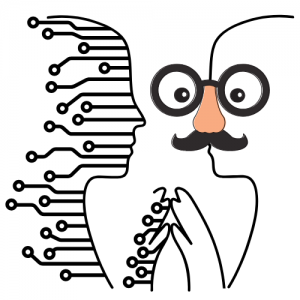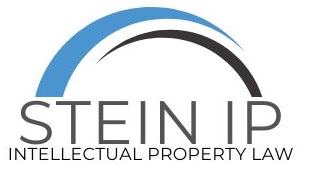docketing@steinip.com
- HOME
- > Blog Main Page
- > AI
- > Pending AI Legislation in Congress
Pending AI Legislation in Congress
By Olivia Turowski
With the rapid development of artificial intelligence (AI) in the last few years, many new issues have arisen concerning intellectual property violations. Companies creating and using artificial intelligence programs have collected millions of various pieces of media in order to train their AI systems, causing creators and owners of these works to push back on unauthorized utilization. Due to this growing problem, multiple pieces of pending legislation in Congress that relate to AI, copyright disputes, and intellectual property infringement have appeared during the 119th Congress.
An interesting piece of legislation that deals with protecting artists, as well as all individuals, is the Nurture Originals, Foster Art, and Keep Entertainment Safe (NO FAKES) Act of 2025. The proposed legislation was introduced to the House of Representatives by Representative Maria Elvira Salazar (FL-27) on April 9th of 2025. The purpose of the legislation is to protect the voice and likeness of all individuals from unauthorized, AI generated recreations. [1] This bill moved quickly to the Senate and was introduced by Senators Chris Coons (D-DE), Marsha Blackburn (R-TN), Amy Klobuchar (D-Minn.), and Thom Tillis (R-N.C.). 
The act aims to quell the growing concern around deepfakes, which are artificial images or videos created by machine learning nicknamed “deep” learning. Deepfakes have the potential to become a widespread issue, with people impersonating others and spreading misinformation while using others' identities. The creation of these deepfakes can lead to blackmailing, scamming, and even violence. [2] Furthermore, deepfakes can be used to impersonate artists and their work, causing a serious threat to intellectual property. The group of senators sponsoring the bill have stated that the legislation will, if passed, hold individuals or companies liable for the creation of unauthorized digital replicas of individuals in performances. Digital platforms, who are aware that the content is not authorized, will be held liable for allowing the unauthorized replicas to exist on the digital platforms. [3]
A similar piece of proposed legislation introduced in the Senate is the Content Origin Protection and Integrity from Edited and Deepfaked Media Act (COPIED) Act. The aim of the act is to set new federal transparency guidelines that focus on identifying and authenticating AI-generated content in efforts to protect actors, artists, and journalists against theft. The bill was reintroduced by U.S. Senators Maria Cantwell (D-Wash.), Marsha Blackburn (R-TN), and Martin Heinrich (D-N.M.) on April 9th, 2025. The bill originally introduced on July 11th, 2024, however, was heavily criticized by both the public and other politicians for possibly infringing on free speech and stunting AI innovation.
The COPIED Act also aims to provide the technical tools needed to suppress and control AI-generated content. Part of the resolution written into the act includes the National Institute of Standards and Technology stepping up and creating standards for synthetic content detection and watermarking in order to provide transparency on what content has been created or edited by AI. The bill will also give original creators permission to bring suits against platforms and individuals who have used and manipulated the creators content with AI without permission. AI tool providers will be required to adhere to creators' content provenance, which is the trackable history of the digital media, placed upon their work and not allow anyone to remove the form of identification. [4]
The Transparency and Responsibility for Artificial Intelligence Networks (TRAIN) Act continues the pattern of similar AI related bills being floated in Congress. This proposed act was reintroduced on July 17th, 2025, by Senators Peter Welch (D-Vt.), Marsha Blackburn (R-TN), Adam Schiff (D-CA), and Josh Hawley (R-MO).
The bill focuses on helping creators access courts in order to prevent and cease copyrighted works from being used for training AI models. Copyright holders will be allowed access to AI training records to see if their work was used. AI companies are currently not required to release their training records by law, leading them to hide much of their process. The TRAIN Act has been endorsed by many creative agencies, such as the American Federation of Musicians (AFM), Recording Academy, and SAG-AFTRA. [5]
As AI technology swiftly progresses, more legislation will continue to appear in an attempt to regulate the emerging market. The bills discussed above are generally bipartisan, with politicians hopefully focusing more on the effects on creative industries and the general public's wellbeing rather than aiming at certain groups or political movements, leading to an interesting middle ground found between elected officials in divided times.
References:
[1] Office of Congresswoman Maria Elvira Salazar, Congresswoman Salazar Introduces the NO FAKES Act, Salazar (April 11th, 2025), https://salazar.house.gov/media/press-releases/congresswoman-salazar-introduces-no-fakes-act-0
[2] UVA Information Security, What the heck is a deepfake?, University of Virginia (n.d.), https://security.virginia.edu/deepfakes
[3] S.1367, 119th Cong. (2025).
https://www.coons.senate.gov/imo/media/doc/no_fakes_act_one-pager.pdf
[4] U.S. Senate Committee on Commerce, Science, and Transportation, Cantwell, Blackburn, Heinrich Reintroduce Bipartisan Bill to Increase Transparency, Combat AI Deepfakes & Put Journalists, Artists & Songwriters Back in Control of Their Content, U.S. Senate (April 10th, 2025), https://www.commerce.senate.gov/2025/4/cantwell-blackburn-heinrich-reintroduce-bipartisan-bill-to-increase-transparency-combat-ai-deepfakes-put-journalists-artists-songwriters-back-in-control-of-their-content
[5] U.S. Senator for Vermont Peter Welch, Welch Leads Bipartisan Bill to Protect Musicians, Artists, and Creators from Unauthorized AI Training, Welch (July 25th, 2025),
https://www.welch.senate.gov/welch-leads-bipartisan-bill-to-protect-musicians-artists-and-creators-from-unauthorized-ai-training/
TAGS:
RECENT POSTS
